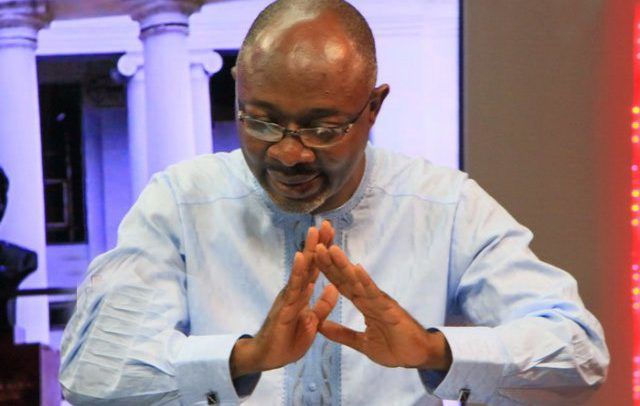
Supreme Court rejects Woyome's plea to pay debt in instalment
The businessman, Alfred Agbesi Woyome, has failed in yet another legal attempt to delay the full payment of the GH¢46 million he owes the state, as his latest move to pay the money in instalments was rejected by the Supreme Court on Wednesday.
In a motion filed on July 31, 2019 for a halt of the execution of the Supreme Court order that his assets be sold to defray the debt, the businessman had pleaded with the court to allow him to pay GH¢10 million now and spread the rest over 90 days by paying GH¢4 million on each payment schedule.
Unmeritorious application
A five-member panel of the apex court, however, dismissed Woyome’s application, describing it as unmeritorious.
The court held that Woyome had, in the past, made such promises to pay the money in instalments but failed to fulfil them.
It was the view of the court that if Woyome was given another opportunity to pay the sum in instalments, it would take him about four years to defray the total amount plus any accrued interest.
“This is clearly not fair, taking into consideration the fact that the judgment for the money to be paid was given in 2014, which was five years ago. The application for stay of execution is, therefore, refused,” the presiding justice of the panel, Justice Paul Baffoe-Bonnie, ruled.
Other members of the panel were Justices Sule Gbadegbe, Anthony A. Benin, Samuel Marful-Sau and Agnes Dordzie.
Bankruptcy
Counsel for Woyome, Mr Muda Adelawal, had a difficult time in his attempt to convince the court to accept his client’s application.
He submitted that Woyome would go bankrupt if the order for the sale of his assets was not stayed.
At that point, Justice Baffoe-Bonnie asked counsel if the assets in question were commercial properties.
Counsel answered that his client intended to lease the properties to pay the debt, adding that “their sale will take the life out of us”.
Dismiss the application
In his response to the application, a Deputy Attorney-General, Mr Godfred Yeboah Dame, had urged the apex court to dismiss it.
He argued that Woyome had filed the application on July 31, 2019 and that if he was serious about paying in instalments, he would have paid the first tranche of GH¢10 million by now.
Valuation of property
In a related development, the court accepted the value of one of Woyome’s properties as determined by the Land Valuation Board of the Lands Commission.
Mr Dame presented the valuation report, which put the value of one of his houses situate at Trassaco at GH¢4.485 million.
“Based on the valuation report, the value of GH¢4.485 million is adopted as the exact price of Plot number 259, Trassaco Valley,” the court held.
The state is seeking to sell the house located at Trassaco Valley at East Legon as part of efforts to retrieve the money from Mr Woyome.
Background
The Supreme Court, on July 29, 2014, ordered Mr Woyome to refund GH¢51.2 million to the state on grounds that he got the money out of unconstitutional and invalid contracts between the state and Waterville Holdings Limited in 2006 for the construction of stadia for CAN 2008.
It was the view of the court that the contracts upon which Mr Woyome made and received the claim were in contravention of Article 181 (5) of the 1992 Constitution of Ghana, which required such contracts to be laid before and approved by Parliament.
The case leading to the Supreme Court decision was initiated by Mr Martin Amidu, the current Special Prosecutor, in his capacity as a citizen of Ghana.
On March 1, 2016, Mr Woyome prayed the court to give him three years to pay back the money but the court declined to grant his wish.
He, however, refunded GH¢4 million in November 2016 and an additional GH¢600,000 and promised to pay the outstanding balance by quarterly instalments of GH¢5 million, commencing April 1, 2017.
That did not materialise, after the businessman initiated a litany of legal cases at the Supreme Court challenging the decision for him to pay the money or efforts to execute the judgment, which were all dismissed.
Apart from fighting his cases in the country, Mr Woyome also sought relief from the International Court of Arbitration of the International Chamber of Commerce (ICC) based in Paris, France, and the African Court of Justice, based in Arusha, Tanzania.
In August 2017, the ICC threw out his case on the basis that he had failed to properly invoke its jurisdiction.
His case at the African Court of Justice was also dismissed in June this year.
Sale of properties
The state, in its attempt to take over the businessman’s properties, faced certain obstacles, which included a claim by the defunct UT Bank that some of the properties belonged to the bank.
On June 27, 2019, the Supreme Court ruled that the properties were, indeed, for Woyome and ordered their sale to defray the debt he owed the state.
The assets to be sold include two mansions at Trassaco Estate, a house at Kpehe, an office complex of Anator Holdings, a residential building at Abelemkpe and a stone quarry, including its plants and equipment.
The court, with Justice Benin as the sole judge, had held that the properties belonged to Mr Woyome and that the claim by UT Bank that the businessman had sold the two houses at Trassaco Estate to it was a sham.
